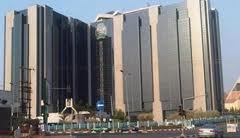Are Nigerians really in control of Nigerian businesses?

Ajanlekoko, an electrical engineer, is a Senior Manager in one of the telecommunication companies operating in Nigeria. He earlier made same post on Nairaland.com
Is it not interesting? In the 70s, 30 odd years ago, most multinational companies in Nigeria were 60-80% owned by Nigerians, and were run almost 100% by Nigerians? Just research and find out about the banks, FMCGs, manufacturing etcs. BP was nationalized to AP, Shell Oil to National Oil, and so on. Now, three decades later, the few multinationals that have not packed up and out of Nigeria are in some cases 90% owned and managed by foreigners, resulting in an extremely high capital flight situation, and also high cost of maintenance of expatriate staff. This isn’t funny, considering that there are millions of jobless Nigerians out there. This has actually created an extreme dependence of the economy on the forex coming in from these foreign-owned multinationals, which is why CBN is not finding the current dollar scarcity funny.
What’s the take of the house on this development?
Established in March 2013, JarusHub is a Nigerian information hub with focus on career and management. It is rated Nigeria's most authoritative destination for online career resources. It parades an array of Nigerian professionals who share their career experiences with a view to bridging career information gap and mentoring a generation to success. Whether you're a student, a recent graduate or an established professional, or even an executive, you will always find something to learn on JarusHub. All enquiries to jarushub@gmail.com or 0808 540 4500. Facebook: www.facebook.com/jarushub; Twitter: @jarushub or @mcjarus.
Career Q&A with Jarus: Oil & gas career, poor CGPA
September 17, 2023What is Career Counselling? How to choose the Right Career?
October 24, 2022Career Advice: Play to Your Strength
March 6, 2022
6 comments
Let us have your say by leaving a comment belowCancel reply
Recommended For You
-
THE ROAD TO VICTORIA ISLAND – Set….
December 30, 2013 -
COMPANY REVIEW: UNITY BANK
September 18, 2018








according to what I read in books Obasanjo introduced the indigenisation policy in 1976. This was introduced in order to balance the disequilibrium in the ownership of business enterprise in Nigeria.
This policy made companies like FBN, UBA, UBN, Afribank, and Oil marketing companies like National Oil now Conoil, Unipetrol now OANDO, African Petroleum now Forte Oil to be nationalised.
The policy compelled companies that want to operate in Nigeria to be 60% owned by Nigerians. The PZ, Lever brothers, Nestle, Cadbury etc were all 60% owned by Nigerians. Nigerians who availed themselves of the opportunities provided by this policy are now billionaires in Naira.
The policy also gave rise to some Nigerians to be promoted to leadership and management positions, unfortunately most of them ruined their companies.
Some of these Nigerianize companies were so badly managed that it gave rise to the formation of shareholders’ associations. Las te Chief Asalu started the first shareholders group in Nigeria,
Nigerian shareholders were no longer interested whether their companies were managed by Nigerians, because they were not impressed the performance of some of the Nigerian managers, but by whoever can deliver superior returns on investment.
I think Babangida was the person that liberalised business ownership in Nigeria. Foreigners were free to own companies 100%, he also liberalised the establishment of financial institutions this gave rise to GTB, Zenith, Fidelity and some other new generation banks.
With the liberalization of business ownership in Nigeria, Nigerian shareholders were not ready to reduced or dilute their holdings in the Nigerianized companies.
The foreign investors who owned 40% in these companies saw prospects in our economy, but the Nigerian investors were not willing to sell their 60% shares in the companies.
These guys now collaborated with the Nigerian managers by issuing dollar denominated convertible corporate bonds. People do not have access to information the way we have it now, in most cases the Nigerian investors missed the opportunities to participate in these bonds. By the time the bonds were converted to shares in 5 years, the proportional holdings of the foreign investors in these companies increased drastically. This is the beginning of when foreigners started taking charge of our economy.
Well I guess this is a wake up call to Nigerians to probably get more involved in the Nigerian capital market to maintain some level of equality but foreign capital influx will still be encouraged in order to further deepen d industries.
Not just the capital market, but Nigerians should be ready in business and productive economic activities that will lead to job creation and financial independence,
Nigerian entrepreneurs should not be afraid of success, most of them celebrate before their celebration. A Nigerian with a business worth N100 million will not strive to increase the value of the business to N1 billion.
We should be prepared to take our businesses to the next level, successful entrepreneurs should encourage their children to imbibe entrepreneurial spirit just as we have the the Indian, Lebanese etc businesses in Nigeria.
We must be prepared to build ” a built to last” business enterprise.
Government can also have a legislation that will compel foreign businesses to always sell certain percentage of their companies to Nigeria.
Nigeria had better be careful before foreigners start deciding what goes on in our country completely as a result of their large investments.